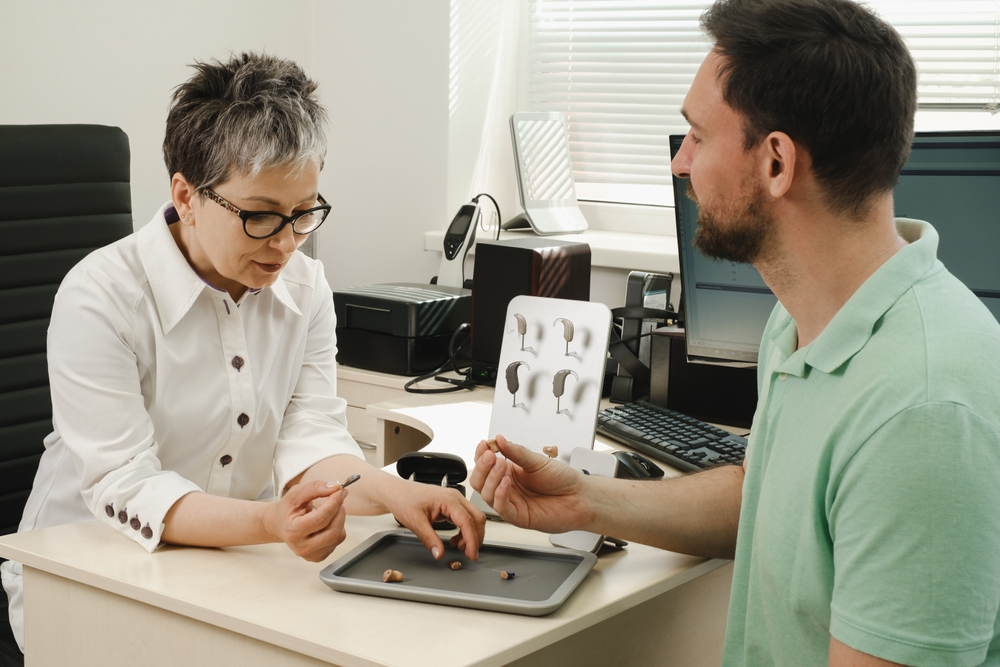About 466 million people have hearing loss, but only 20 percent of people who could benefit from hearing aids wear them. There are many reasons for this, primarily that they don’t acknowledge their hearing issues or that they consider the mere idea of wearing a hearing aid embarrassing. Beyond the obvious benefit of hearing better, those who don’t wear hearing aids often experience the unintended consequence of problems in their personal lives.
Relationships suffer when there is a lack of communication, and when people withdraw from social interaction. Think about these common problems faced by those in relationships when one or both partners does not treat their hearing loss.
Louder volume
People with hearing loss often have to turn up the volume on the radio or TV to follow what’s going on. The increased volume can be problematic for the people around them who cannot enjoy programs when the TV is blaring. If hearing problems are particularly severe, even those in other rooms might be bothered by the sound coming from the living room. Having to shout to be heard can also be trying for both you and your loved ones.
Telephone conversations
If you always have an issue hearing, it’s unlikely that your phone or carrier is the problem. When you have trouble hearing the phone ring or talking to the person on the other line, it’s time to get a hearing test. With a proper hearing diagnosis, you can listen to the people around you better, and there will be less confusion over what you discussed when you answer. You wouldn’t want to miss a romantic dinner or anniversary celebration because you got the details mixed up!
Isolation
People tend to remove themselves from social situations more as their hearing loss gets progressively worse. Isolation has become even more pronounced as chances to socialize are fewer and farther between, and people are struggling to communicate 6 feet apart with masks on.
If you can’t hear conversations in noisy environments, you stop going into places where other people gather. You may also decline invitations to any get-togethers for fear of having to ask people to repeat themselves while mingling. If your spouse or partner likes to go to these types of events, it can create a strain on your relationship when he or she has to attend unaccompanied. Your partner may choose to stop going, too, leading to their own feelings of social isolation.
Lack of communication
It’s no secret that excellent communication is key to a good relationship. The problem doesn’t only lie in the person with hearing loss missing or not understanding all of a conversation. In some instances, they stop communicating altogether to avoid problems. Take, for example, you and your spouse watching your favorite TV show or playing cards together. These types of activities are what we find in healthy relationships. When you have to focus primarily on your hearing, and your spouse always has to face you to talk, it can feel disruptive to what you’re doing. So you minimize conversation. Even quiet nights alone in the family room can become too silent when there is no more discussion about children, grandchildren, or upcoming plans.
Frustration and stress
Ultimately untreated hearing loss can result in frustration, guilt, stress, and other emotional problems for both people in a relationship. In a review of more than 70 studies, researchers found that many of the emotional issues faced by those with untreated hearing loss also affect their loved ones. Your significant other may experience guilt because they aren’t able to help you more, or they may be struggling with their own frustration surrounding your hearing loss. They may become socially isolated themselves because they aren’t willing to let you face your hearing problems on your own. You’re two people who don’t communicate as they used to and who both get increasingly frustrated and, in some cases, depressed. It is difficult for even the best relationships to survive this kind of stress.
If you have difficulty hearing, do yourself (and your relationship) a favor and get a hearing test. If your hearing specialist determines that you need a hearing aid, talk about the various options and find one that makes you feel comfortable. Ask your spouse to go to your appointment with you. That way, he or she feels involved in the process and knows that you want to do whatever you can to keep your hearing and your relationship in tip-top shape. And when you’re done with that, you should celebrate together to celebrate this new chapter in both your lives.



